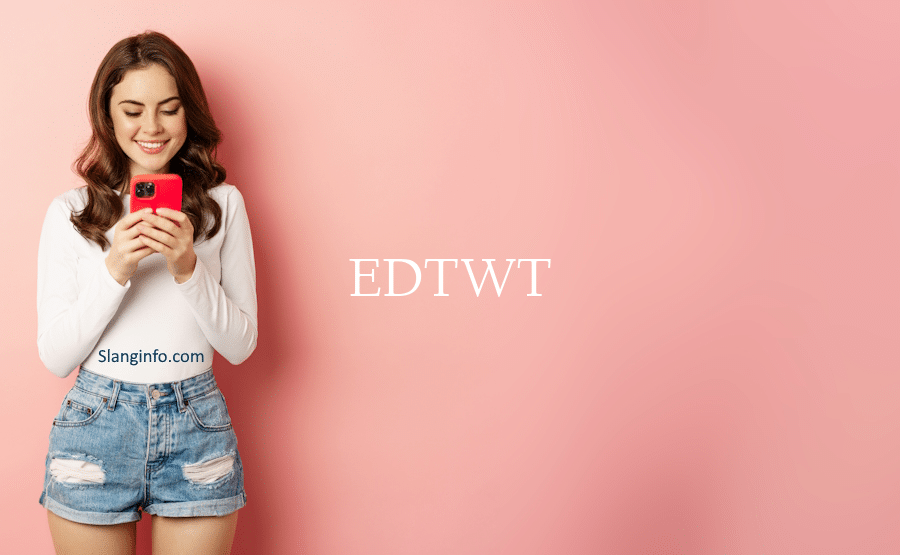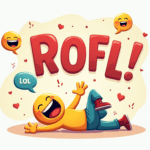Hey there, fellow slang explorers! 👋 Today, we’re diving into a pretty heavy topic that’s been making waves on social media. It’s called EDTWT, and it’s not your average internet lingo. Buckle up, because we’re about to unpack this complex online phenomenon.
EDTWT stands for “Eating Disorder Twitter.” It’s a community that’s formed on Twitter where people talk about their experiences with eating disorders. Now, before we go any further, let’s break down the key points:
| Key Takeaways | Description |
|---|---|
| Meaning | EDTWT = Eating Disorder Twitter |
| Purpose | A space for sharing experiences related to eating disorders |
| Controversy | Concerns about potentially harmful content |
| Impact | Highlights social media’s role in mental health discussions |

The Birth of EDTWT
So, how did EDTWT come to be? Well, it’s like this: imagine you’re scrolling through Twitter, and you see a hashtag that catches your eye. That’s pretty much how EDTWT started. People dealing with eating disorders began using this hashtag to find others who understood what they were going through.
It’s kinda like when you use #YOLO to connect with other thrill-seekers, but EDTWT is way more serious. It combines “ED” (short for eating disorder) with “twt” (Twitter’s nickname). Before you know it, boom! A whole community forms.
The Good, The Bad, and The Ugly
Now, let’s talk about why EDTWT is such a big deal. On one hand, it’s giving people a place to open up about their struggles. That’s huge! 🙌 Having a support system can make a world of difference when you’re dealing with tough stuff.
But here’s where it gets tricky:
- Support: People find others who understand their experiences
- Awareness: It brings attention to eating disorders
- Risks: Some content might accidentally glorify harmful behaviors
- Controversy: There’s debate about whether it helps or hurts
It’s like a double-edged sword, you know? While it’s great that people are finding support, there’s also worry that some of the content could be triggering or even encourage unhealthy habits.
The Social Media Effect
Let’s face it, social media is a wild place. One minute you’re laughing at POV TikToks, and the next, you’re deep in a serious conversation about mental health. EDTWT shows just how powerful platforms like Twitter can be in shaping conversations and communities.
But here’s the thing: with great power comes great responsibility (yeah, I just quoted Spider-Man, deal with it 😎). Social media algorithms can sometimes boost content that might not be the healthiest, and that’s where things get dicey with EDTWT.
Speaking the Language
If you’re navigating EDTWT or similar online spaces, you might come across some specific terms. Here’s a quick rundown:
- Pro-ana: Content that promotes anorexia (big yikes!)
- Thinspiration: Images or messages meant to encourage extreme weight loss
- EDNOS: Stands for Eating Disorder Not Otherwise Specified
It’s crucial to understand these terms, not to use them, but to recognize potentially harmful content. Remember, if you ever feel overwhelmed or triggered by what you see online, it’s totally okay to step back and touch grass (literally and figuratively).
Navigating the Controversy

Alright, let’s get real for a sec. EDTWT is a touchy subject, and for good reason. There’s a fine line between providing support and accidentally promoting unhealthy behaviors. It’s like trying to walk a tightrope while juggling flaming chainsaws – not easy! 🔥🤹♀️
Some folks argue that EDTWT could normalize eating disorders or make them seem like a lifestyle choice. Others worry about the anonymity of the internet and how it might allow dangerous content to spread like wildfire. 🌋
But here’s the thing: these concerns aren’t unique to EDTWT. They’re part of a larger conversation about how social media impacts mental health and body image. It’s a complex issue that doesn’t have a one-size-fits-all solution.
Finding Help and Support
If you or someone you know is struggling with an eating disorder, please know that you’re not alone. Help is available, and recovery is possible. 💪 EDTWT might be a starting point for some, but it’s not a substitute for professional support.
Here are some resources to keep in your back pocket:
- National Eating Disorders Association (NEDA): They’ve got a helpline, text support, and a ton of online resources.
- Project HEAL: This non-profit offers treatment access and support services.
- Recovery Warriors: An online community focused on eating disorder recovery.
Remember, reaching out for help is a sign of strength, not weakness. You got this! 👊
The Bottom Line
At the end of the day, EDTWT is a reflection of the complex relationship between social media and mental health. It’s a space that can offer support but also comes with risks. It’s important to approach it with caution and prioritize your own well-being.
If you take away anything from this post, let it be this: your mental health matters, and there’s no shame in seeking help when you need it. Whether you’re scrolling through EDTWT, sharing memes, or just trying to navigate this wild ride called life, remember to be kind to yourself and others. 🤗
Stay informed, stay safe, and most importantly, keep on exploring the ever-changing world of slang! Until next time, fam. ✌️
If you enjoyed this deep dive into EDTWT, check out our other posts on mental health-related slang terms like JOMO and FWIW. And if you’ve got a slang term you want us to explore, HMU! We’re always down to learn something new.







